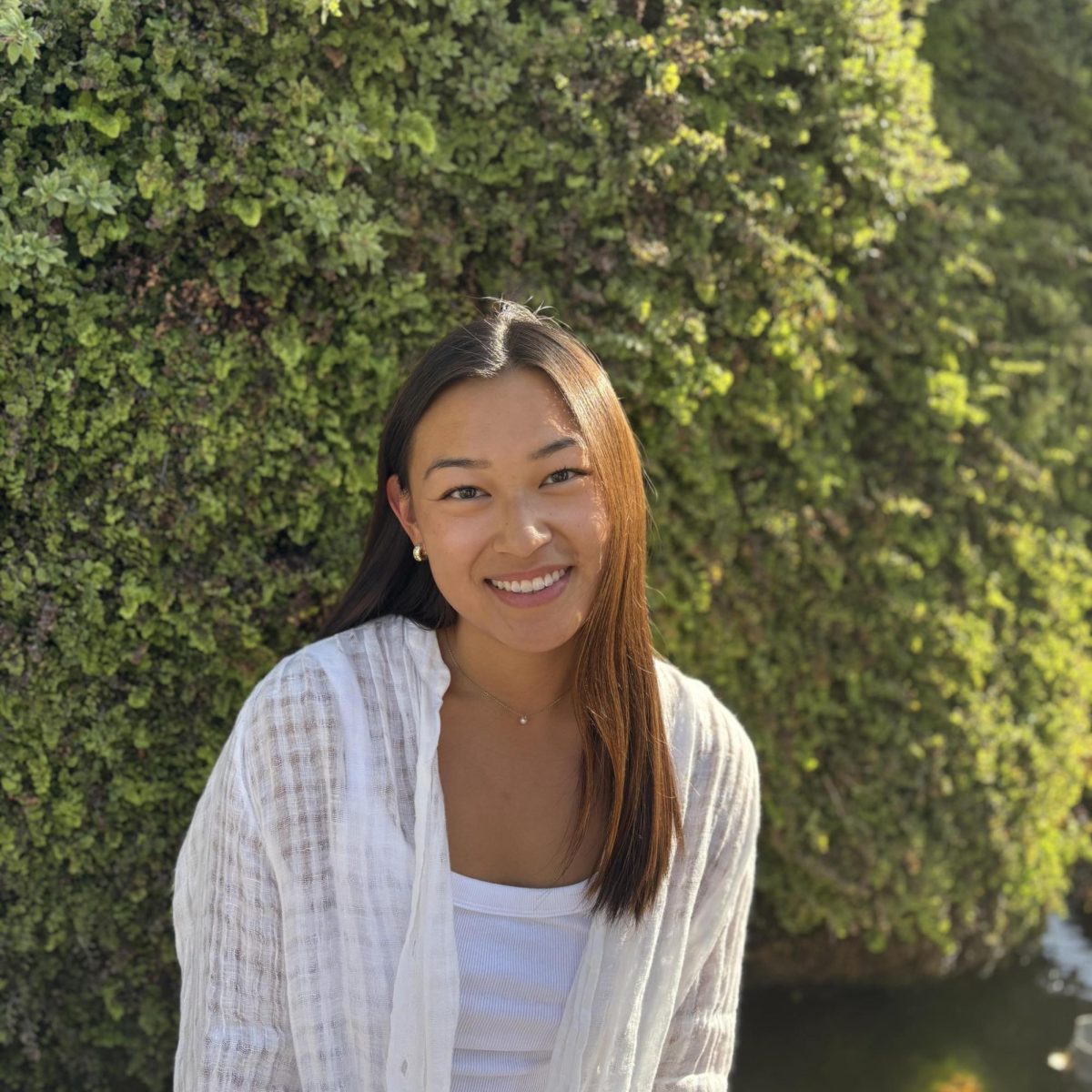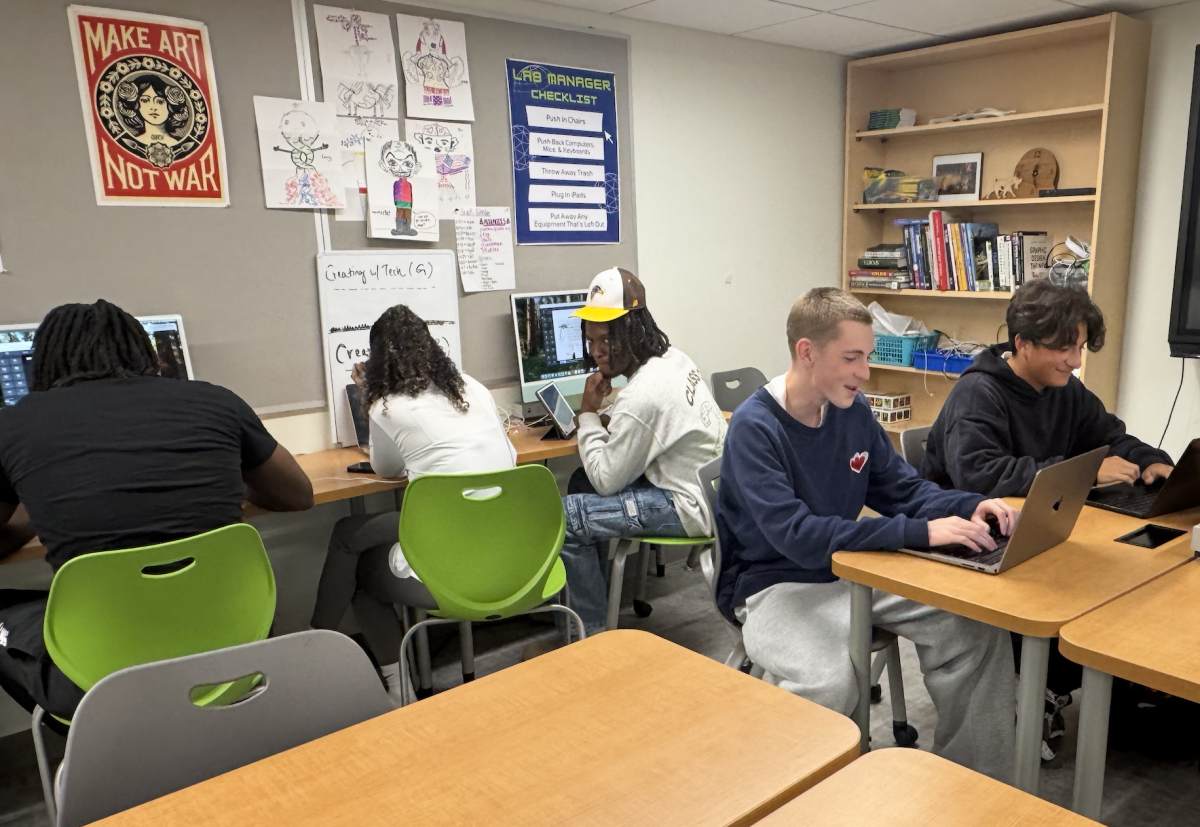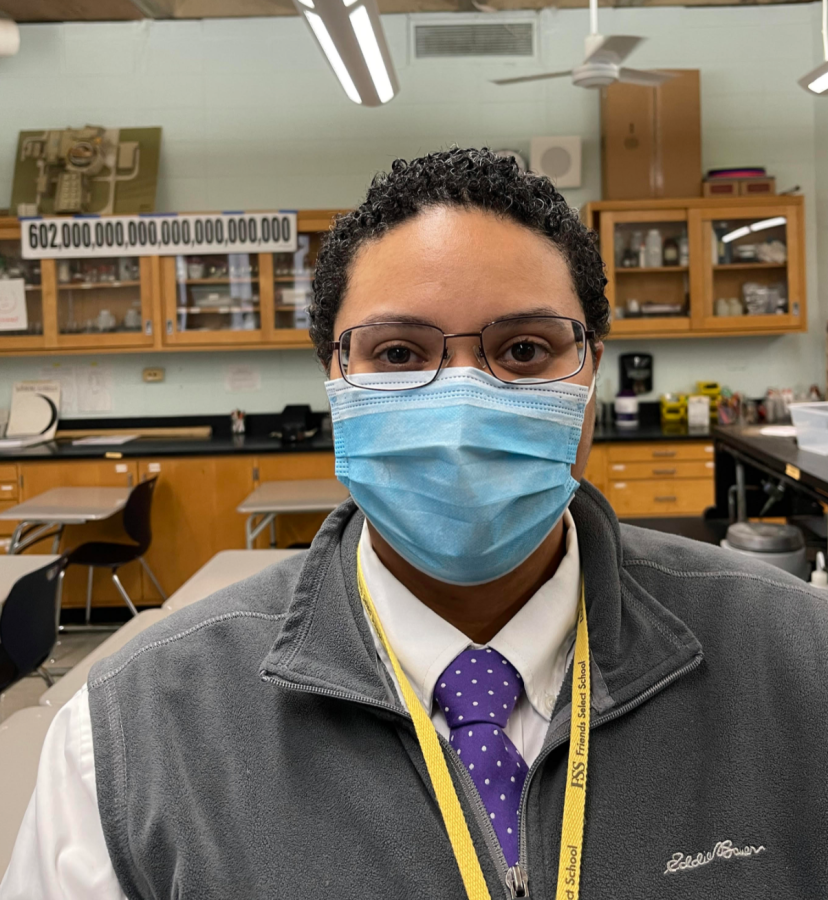Monica Higgins: Finding the Science in Students’ Everyday Lives
Monica Higgins, Friends Select’s new Chemistry Teacher, brings an interesting perspective on what it means to love, apply, and understand science, which she strives to share with her students in Chemistry, Advanced Chemistry, and Chemistry of Materials.
Monica grew up in Morgantown, West Virginia. She spent different parts of her life and career in Pittsburgh, Michigan, and Boston. After teaching Environmental Studies for ten years at Wellesley College, she moved to Philadelphia and taught high school students in the Philadelphia School District. Eventually, she found her way to Friends Select through her wife, Liz Plunkett, who is an FSS 3rd Grade Teacher. “I was really impressed with the school’s mission and what they were doing. I always trust my wife – Liz is a good judgment of an institution and she loves it here,” Monica explains.
“Every time I finished a degree, I felt like I was not finished learning,” she explains. “I got really into the idea of teaching as a way to keep learning for the rest of my life… now, I am teaching and studying the intricacies of high school students here. Maybe I’ll publish a journal on that,” she jokes.
Science has always drawn Monica in. She found inspiration in her youth from the middle school science that her mom taught. “I… fell in love with the very logical and strictly analytical parts of science and testing things, she says. Monica describes herself as a “tinkerer,” recalling the many times she would take apart household objects and made things “pretty tough for [her] parents.” This passion for science only grew with encouragement from impactful high school teachers.
Monica has been quite impressed by her classes, as this is her first time teaching high school students in person. The inquisitive nature of the questions she receives are challenges that make teaching fun for her. “I’ve been really impressed with the ways that students advocate for themselves, ask when they don’t understand, and follow up if they have questions… having to say the same thing over and over or come up with that 14th example makes you a better teacher,” Monica says. She would like to build an appreciation for chemistry in all of her students, and inspire a handful of them to “really fall in love with [it].” She hopes that the addition of the hands-on aspect that was so absent last year will help her achieve this goal.
Science Department Chair Natalie Mayer says, “Monica came on board a few weeks prior to school starting, and she already seems like she’s been here for years and years.”
Nora Marwaha ‘24, a Chemistry student this year, describes Monica’s teaching style as very interactive and organized. “She gives us class organizers, which [are] very helpful to study with.”
Lucy Kelley ‘22, a Chemistry of Materials student, notes that Monica makes clear “how excited she is about what she is teaching, which makes [learning] exciting also. She really engages students while educating you to the fullest.”
Monica is very conscious of the fact that high school students often juggle a lot of personal interests, identities, and challenges all while trying to handle school. “I will have high school kids who are on the verge of discovering themselves fully, so how do I assign you some ‘rando’ research paper while you are actually in the hard work of your life of discovering who you are?” she wonders.
Her approach is to try to make science applicable and tangible in students’ lives. “Now more than ever, it feels easy to connect being… an engaged citizen of our planet to having some sort of real breadth of knowledge in science,” Monica explains. She names some large examples as climate change and pandemic science. However, real-life applicable scientific concepts don’t have to be so broad or advanced to still relate to students’ lives. She also lists understanding how your car works, how your computer charges, or how you bake cookies as examples of science in real life. “That is the same chemical reaction we are using in class!” she says.
Monica takes interest in the differences between age groups that she is familiar with teaching. Having taught college students, high school students, and having heard stories of 3rd-grade students from her wide, she often notices the differences in what lower schoolers are learning. “[Liz’s] kids are learning how to be friends and how to follow routines. I can’t imagine helping students with things like that,” she says. Liz has said to Monica, “in 6 years, you will have my students.”
Outside of the classroom, being a parent is another huge part of Monica’s identity; her children are two and five years old. “The combo of keeping them happy and keeping them alive is a lot,” she jokes. She likes to build things with wood and other materials and enjoys puzzles, both physical and logical. She names herself a “logical, dependable, and funny” person who hopes to inspire a culture of learning and a love of science in the Friends Select community.





























